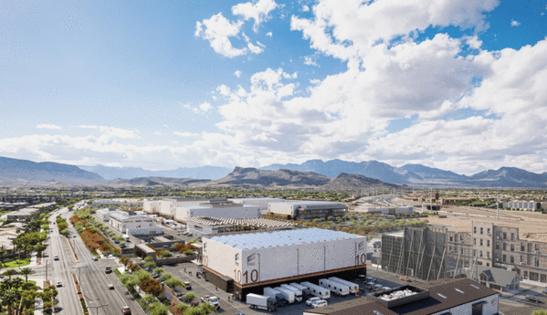Film tax credits in Nevada could be expanded under 2 new bills
Published in News & Features
LAS VEGAS — Two bills that would seek to draw film studios to Las Vegas by expanding the film tax credits available in Nevada were introduced in the Legislature this week, bringing the possibility of a large-scale studio project to the state.
Assembly Bill 238 would establish $80 million in annual transferable tax credits, available starting July 1, 2028, for 15 years after the project satisfies the capital investment requirement of at least $400 million. It also requires the project to include a vocational training and education facility to be named the Nevada Partners Vocational Training Studio. Additionally, the bill includes $25 million in nontransferable tax credits for independent production available for use outside of the studio campus.
Assembly member Sandra Jauregui said the bill she sponsored — dubbed the Nevada Studio Infrastructure Jobs and Workforce Training Act — is unique in requiring an investment from developers and production studios before receiving the tax credits. Sony Pictures Entertainment’s proposed studio in Summerlin would be the partner.
“That means there is a tangible TV series or movie that’s been filmed,” Jauregui, D-Las Vegas, said Thursday. “That means that investment has been made in our state, right? And then once production’s been completed, they can then go and apply for a tax credit.”
This is the second legislative session to see proposals to turn Las Vegas into a film studio hub. In 2023, Sen. Roberta Lange introduced legislation that sought $190 million in annual transferable tax credits — though it never made it to a floor vote.
This session’s version, Senate Bill 220, would enact the Nevada Film Infrastructure, Workforce Development, Education and Economic Diversification Act. This version would provide up to $83 million in transferable tax credits for 15 years at UNLV’s Harry Reid Research and Technology Park in southwest Las Vegas with the partnering film studio The MBS Group. The project would be required to make a $300 million capital investment by Dec. 31, 2029.
SB 220 also includes tax credits available during a “ramp-up” three-year development period, which Lange, D-Las Vegas, said would utilize $48 million to $63 million in funds in the film office that often go unused because the funds are not enough for production.
Lange said she’s most proud of the bill’s provisions related to education. It includes requirements to build an educational facility that would train students at Nevada schools and universities for film industry careers.
“We’re going to train them in film so that they can help us with our pipeline and stay in Nevada and work in Nevada,” she said.
Both bills include provisions about hiring Nevada residents. They also require submission of proof to the state that 70 percent or more of the funding for the project has been obtained.
Both Lange and Jauregui said the bills could be crucial to economic diversity in the state.
“We just can’t depend on the casino industry to support this state forever,” Lange said. “We are a mature state now, and we have to do mature things, and sometimes we have to do things that are really hard, and we have to take, sometimes a little bit of a risk to get to where we need to be.”
What comes next
Discussion may begin in earnest soon. Committee agendas are not yet available, but AB 238 could be heard as soon as next week, Assembly Democrats said. Lange said SB 220 is expected to have its first hearing sometime in March.
It’s unclear if both, or either, of the bills will make it all the way to the governor’s desk. Lange said she’s concerned that the split makes the total proposals too expensive and will lead to both bills passing their respective chambers but not making it further.
“I fully expect that my bill will pass the Senate, the other bill will pass the Assembly — and therein lies the negotiation,” Lange said.
In interviews with other media outlets since the session’s onset, Republican Gov. Joe Lombardo said he believed the 2023 version was too significant of an effect on the general fund, but he wanted to see the Legislature work through this year’s proposals before he takes a stance.
Still, it may be a challenge. Lombardo said he was worried about the proposal’s budget impact. It’s a position some lawmakers share. During a press conference Thursday, Assembly Speaker Steve Yeager, D-Las Vegas, said he wants to better understand the economic impact a large film studio could have.
“My position has been pretty clear all along that we’ll let them make the case. It’s a big ask,” Yeager said. “It’s a lot of money. No secret that the budgets are in a pretty bad way right now. But you know, in my mind, I’m going to evaluate that proposal to see whether it makes sense for us.”
___
©2025 Las Vegas Review-Journal. Visit reviewjournal.com.. Distributed by Tribune Content Agency, LLC.







Comments